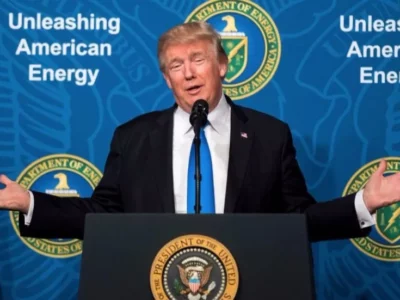Exxon Valdez: 20 Years Later – Lessons Learned
 Today commemorates a sad and calamitous event in American environmental history: the 20th anniversary of the Exxon Valdez oil spill in Alaska’s Prince William Sound.
Today commemorates a sad and calamitous event in American environmental history: the 20th anniversary of the Exxon Valdez oil spill in Alaska’s Prince William Sound.
The key facts of that ecological disaster, recounted in yesterday’s New York Times, are by now well-known: the spill of 11 million gallons of crude oil into near-shore ocean waters, the despoiling of some 1300 miles of Alaskan shoreline, pollution of one of the planet’s richest fishing grounds, the disruption of the Alaskan commercial fishing and tourism industries, and economic havoc for the thousands of Alaskans who depend on those industries.
It’s taken nearly all of the two intervening decades to sort out the legal liability for the Exxon Valdez disaster. Exxon has paid out over $1 billion in legal damages for the spill, and twice that much has been spent by private and government sources to fund Alaskan clean-up and recovery efforts.
Some good has actually come as a result of the Exxon Valdez spill. Shortly thereafter, Congress passed legislation imposing a double-hull requirement for oil tankers that makes those vessels far less susceptible to the types of disasters that befell Alaskans and the marine environment in March 1989. And it’s beyond debate that oil spill contingency planning techniques and the science underlying oil spill ecosystem recovery efforts have greatly improved over the past 20 years.
And yet…
Oils spills, alarmingly, still occur. The 2007 Cosco Busan spill in San Francisco Bay, though far smaller in scale than the Exxon Valdez disaster, had its origins in pretty much the same type of human judgment errors and substance abuse that caused the latter spill. The plain fact is that transporting crude oil and petroleum products by sea remains a very risky business.
 Two other, random thoughts come to mind as we commemorate the Exxon Valdez spill:
Two other, random thoughts come to mind as we commemorate the Exxon Valdez spill:
- What a difference a year-and an election-make. Until recently, we considered marine spills as a long-term, unavoidable consequence of our national addiction to oil-an addiction that showed no sign of abating. Now, under the political leadership of President Obama, Secretary of the Interior Ken Salazar, Energy Secretary Steve Chu and others, we’re seeing a rejection of the “drill, Baby, drill” mentality of the Bush Administration; in its place, the current Administration seems genuinely interested in weaning America from its oil addiction, in favor of pursuing renewable (and less polluting) sources of energy. Let’s hope our grandchildren are able to look back on the Exxon Valdez spill as the inevitable byproduct of short-sighted energy policies misguidedly pursued by their elders.
- As dramatic a calamity as the Exxon Valdez spill was, it probably no longer represents the most ominous, current threat to our ocean environment. That dubious distinction probably belongs to climate change and its myriad ecological consequences. Ocean acidification, in particular, is a major cause for alarm. And, sadly, unlike even mammoth oil spills such as the 1989 Exxon Valdez disaster, no amount of money, clean-up crews, environmental lawyers or political will is likely to address satisfactorily the looming threat climate change presents for our ocean environment.
Reader Comments
One Reply to “Exxon Valdez: 20 Years Later – Lessons Learned”
Comments are closed.






Adding to the tradegy of the spill was the failure of the George H.W. Bush Administration to recommend a major disaster declaration under the Robert T. Stafford Disaster Relief and Emergency Assistance Act (Public Law 100-707) which amended in part, supplemented in part and repealed in part the Disaster Relief Act of 1974 (Public Law 93-288) both statutes in remaining form codified at 42 US Code Sections 5121 and following. For explanation of this non-declaration see my letter to the editor published in the January 2009 Natural Hazards Observer published by the Natural Hazards Center at the Univeristy of Colorado, Boulder.